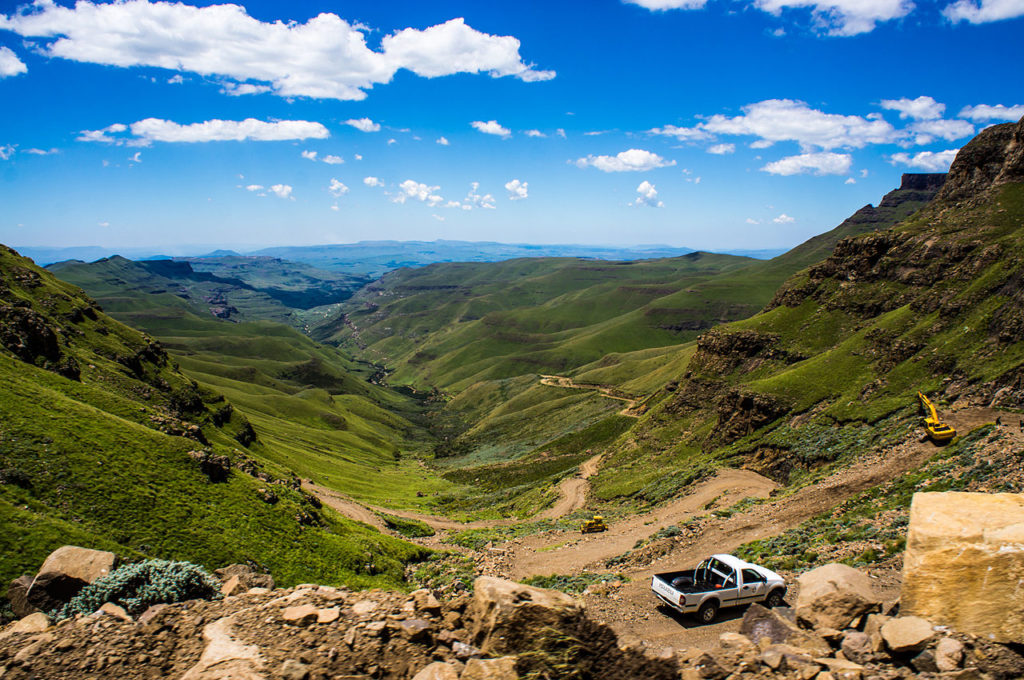Lesotho, an impoverished and relatively unknown landlocked country in southern Africa, is now the proud host nation of a new cannabis project. The initiative of Halo Labs Inc., the company is hoping that the ideal climate and abundant free water will be a boon. For Lesotho, the initiative will be a driver of job creation and will bring additional growth and diversity to its export industry.
Isolated and impoverished, Lesotho hopes to benefit from cannabis project


The legal cannabis business is spurring an ever-increasing number of companies to try their hand at this market in the hope that they, too, can reap the juicy financial rewards this renewable raw material has to offer.
And this is no different in certain parts of Africa, where a cannabis sector of a not insignificant size has now developed, which is now focusing on a wide variety of products containing cannabis ingredients.
Find out more details about the cannabis market in Lesotho and read the most important hemp news with the Hemp.im mobile app.
Lesotho, an isolated and impoverished nation, hopes to benefit from the project
In Lesotho—an enclosed nation (completely enclosed by South-Africa) and one of the poorest countries in the world—is just one amongst the others building on the fact that the trade in hemp products can improve the everyday life of many people in the future.
Leading the way in this nation, Halo Labs Inc., which was once founded in Oregon, has set up shop here, after having previously expanded its activities to Nevada and California. Halo Labs Inc. is now following a special path, as it is the first company active in the cannabis business to welcome an African chairwoman to the board of directors, Louisa Mojela.
From humble beginnings to new frontiers
Four years ago, Halo Labs Inc. started a six-acre plantation in Oregon. It was one of the largest cannabis projects in the well-known US state. From this humble beginning, the company has now moved to southern Africa, where a nine-year license will allow it to use 82 times the area for the production of potent cannabis plants.
This will take place at the Bophelo site, which is ideally located, coming with an abundant workforce, abundant free water, flat land, good soil, and low electricity costs. To make the project a great success, Halo Labs Inc. hired former bank employee and company founder Louisa Mojela who, in 2018, founded Bophelo-Bioscience and Wellness (which later merged with Halo Labs Inc.) and who has been voted as one of the 40 leading female entrepreneurs in the world.
A dual commitment to quantity and quality
Cooperation with the well-known seed bank DNA Genetics is being used entered into for the production of the plants in the Lesotho project. It is hoped that this will result in pure varieties with promising properties. The quality of the Lesotho project is being further enhanced by the pursuit of GMP certification, which will enable the export of cannabis as medicine to England and Europe.
It is also envisioned that this will be a highly productive region for cannabis cultivation. Thanks to the sunny weather in the African country of Lesotho, at least three harvests per year are being expected, which will be cultivated in protected greenhouses that will serve double-duty, also being used for the subsequent processing.
Looking forward to the future ahead
Louisa Mojela, who can already look back proudly on a successful career filled with successful companies and projects, and who has already specialized in the professional advancement of women in South Africa, has been a close associate of the company. As its chairwoman since this year, she will be puting her heart and soul into it, ensuring that all employees and the region will benefit from the efforts in Lesotho.
Mojela and Halo Labs are now hoping to not only write a great piece of history but also to make a great contribution to the Lesotho economy and its fledgling cannabis industry. The manufacturer has already sold the equivalent of six million grams of oils and concentrates from the Lesotho plant since its inception.
—
(Featured image by Vaiz Ha via Wikimedia Commons)
DISCLAIMER: This article was written by a third party contributor and does not reflect the opinion of Hemp.im, its management, staff or its associates. Please review our disclaimer for more information.
This article may include forward-looking statements. These forward-looking statements generally are identified by the words “believe,” “project,” “estimate,” “become,” “plan,” “will,” and similar expressions. These forward-looking statements involve known and unknown risks as well as uncertainties, including those discussed in the following cautionary statements and elsewhere in this article and on this site. Although the Company may believe that its expectations are based on reasonable assumptions, the actual results that the Company may achieve may differ materially from any forward-looking statements, which reflect the opinions of the management of the Company only as of the date hereof. Additionally, please make sure to read these important disclosures.
First published in Hanf Journal, a third-party contributor translated and adapted the article from the original. In case of discrepancy, the original will prevail.
Although we made reasonable efforts to provide accurate translations, some parts may be incorrect. Hemp.im assumes no responsibility for errors, omissions or ambiguities in the translations provided on this website. Any person or entity relying on translated content does so at their own risk. Hemp.im is not responsible for losses caused by such reliance on the accuracy or reliability of translated information. If you wish to report an error or inaccuracy in the translation, we encourage you to contact us.



Comments are closed for this post.